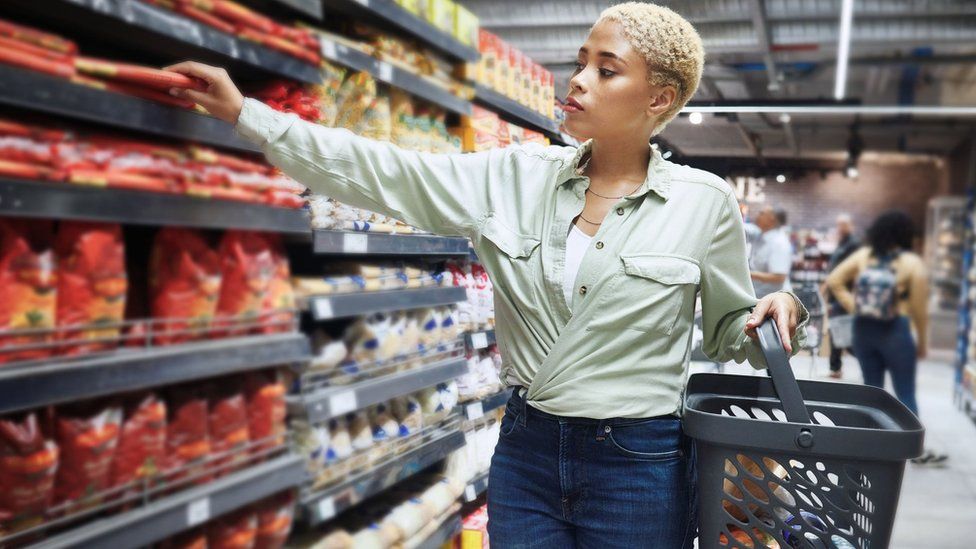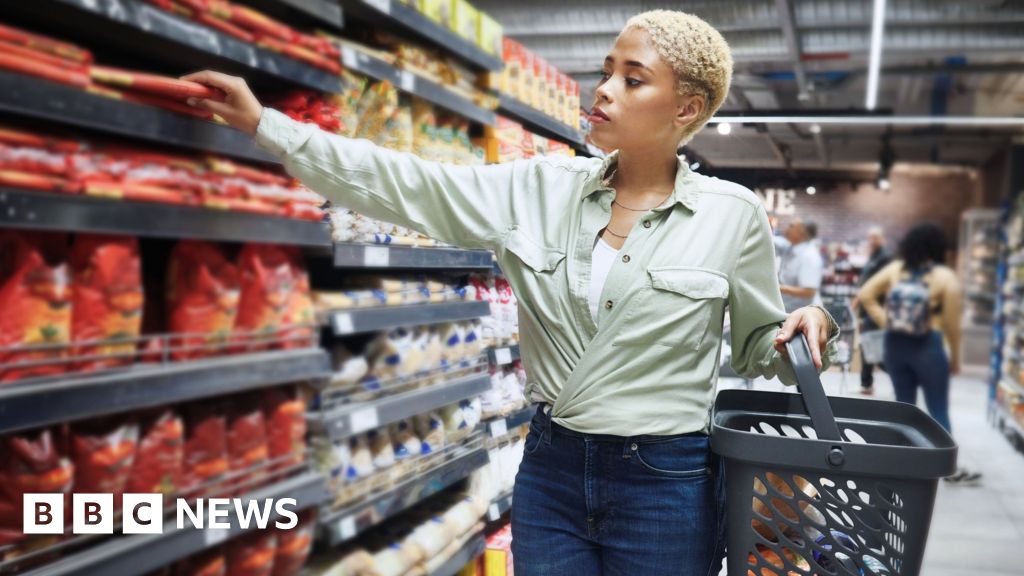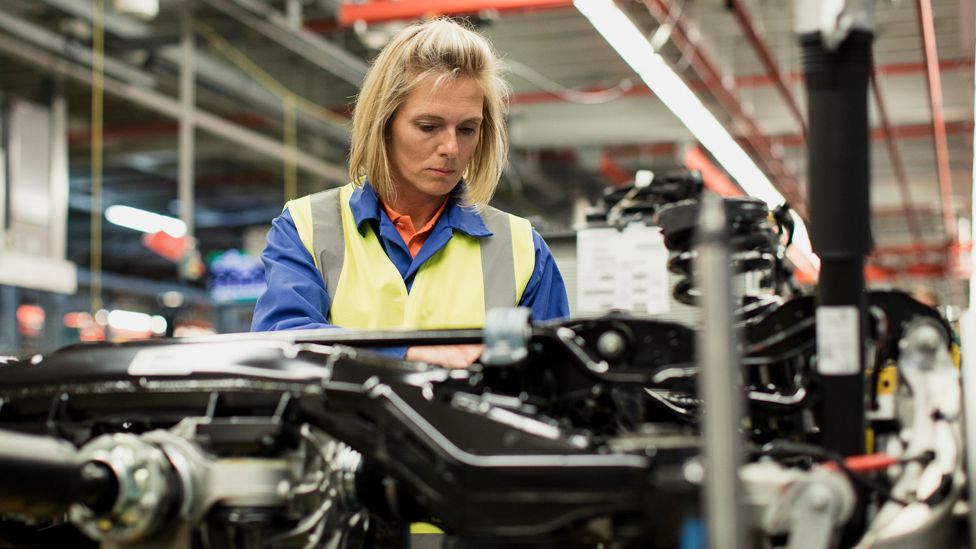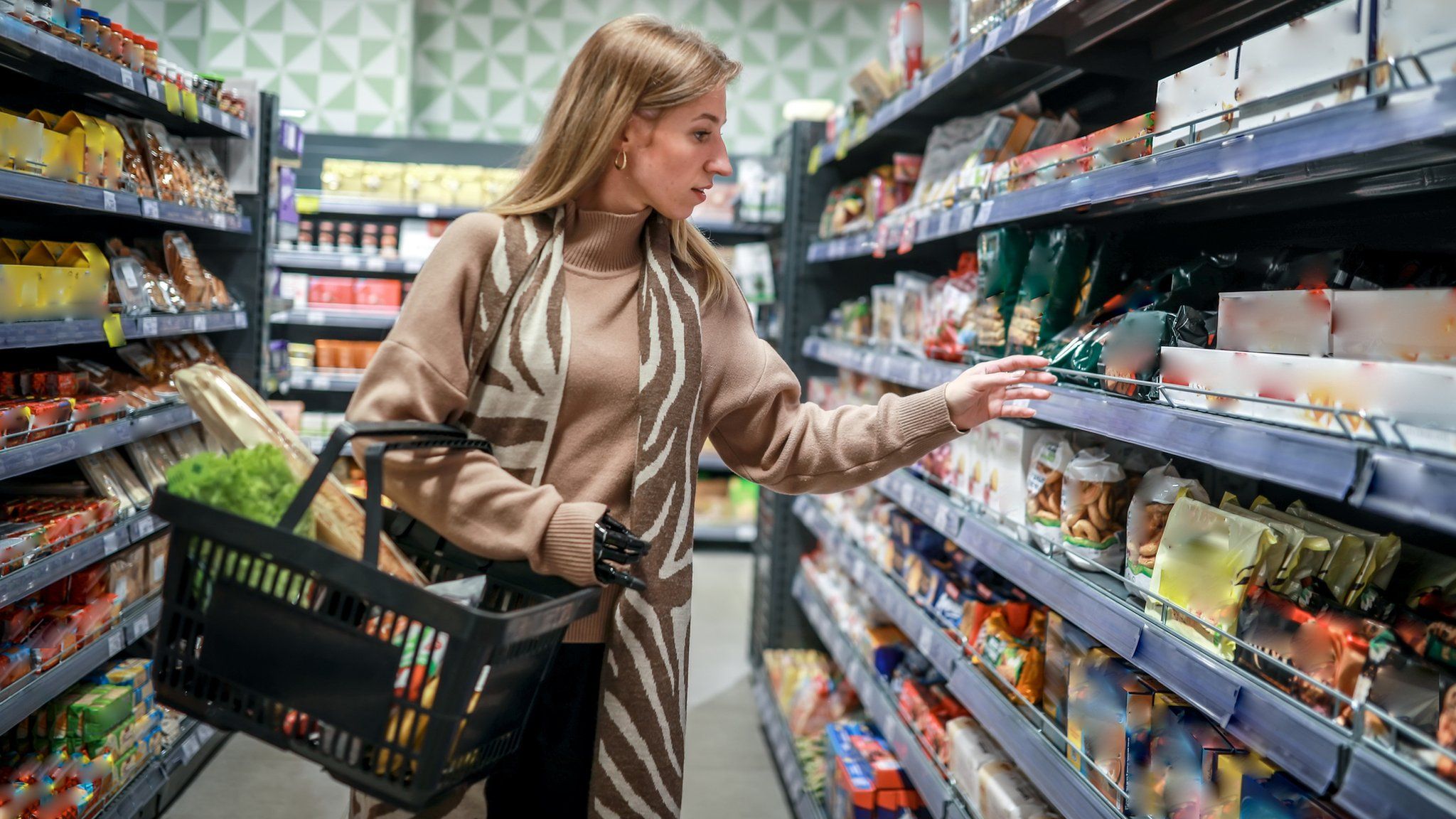
Shop sales rebounded in January as shoppers flocked to stock up on food at supermarkets and take advantage of new year bargains.
Official figures revealed a 3.4% jump in sales following a record drop in December.
Food sales at supermarkets rose strongly while department stores reported a positive impact from January sales.
However, inflation remained elevated with people paying more for less.
The Office for National Statistics (ONS) said that the value of goods people bought in January went up 3.9%, compared to the 3.4% increase in the volume of products they purchased.
Inflation, which measures the pace of price rises, has slowed significantly but at 4% it remains higher than the Bank of England’s 2% target. It had been raising interest rates to cool rising prices.
“Sales increased across nearly all retail sectors and it was a particularly strong month for supermarkets,” said Heather Bovill, deputy director for surveys and economic indicators at the ONS.
“Household goods stores, sports shops and department store retailers were among those reporting robust trading due to January sales promotions.”
Shop sales fell sharply in December which the ONS attributed to people shopping earlier for Christmas during Black Friday sales in November.
But it also said that 46% of nearly 2,400 people that it surveyed last year said they planned to spend less on Christmas food or gifts “because of the rising cost of living”.
The fall in retail sales during December also contributed to a fall in gross domestic product – a key measure of a country’s economic health. It was confirmed on Thursday that the UK fell into recession at the end of last year.
Economists and commentators were divided on whether January’s bounce signalled a turning point for the UK’s retailers and consumer spending.
Joe Maher, assistant economist at research firm Capital Economics, said: “The strong pick-up in sales suggests the worst is now behind the retail sector and falling inflation and rising wages in 2024 will provide a strong platform for recovery.”
He said the increase was stronger than expected “and suggests the drag from higher interest rates on consumer spending is fading fast and points to the economy soon moving out of recession”.
But Lisa Hooker, leader of industry for consumer markets at accountancy firm PwC, said: “Consumers remain cautious about spending, particularly in discretionary and big ticket categories, and we do not predict a sustained recovery until the second half of 2024.”
Consumer spending has been under pressure because of inflation, which measures how quickly prices rise. It hit a four-decade high of 11.1% in October 2022 and the Bank of England carried out a number of interest rate rises in a bid to tackle soaring costs.
Raising interest rates helps cool inflation because it means people have less money to spend. Borrowing, such as mortgages and credit cards, becomes more expensive but it should also encourage people to save more as banks, theoretically, pass on higher saving rates to customers.
After raising interest rates to 5.25% last August, the Bank of England has kept them on hold.
Financial markets are expecting the Bank to cut rates this year but the question is when that will happen.
Economic data revealing that the UK had slipped into recession in 2023 raised the prospect that the Bank could make a cut in the spring, easing the burden for some households.
Chancellor Jeremy Hunt, who will announce his Budget on 6 March, said on Thursday: “While interest rates are high – so the Bank of England can bring inflation down – low growth is not a surprise.”
But he said he believed the economy was “turning a corner”.
At its last interest rate meeting in early February, the Bank of England appeared to open the door to a cut. One of its nine-member Monetary Policy Committee which decides on interest rates, voted for a reduction.
While the Bank’s governor Andrew Bailey said he was “optimistic” that inflation was heading in the right direction, he said: “We need to see more evidence that inflation is set to fall all the way to the 2% target, and stay there, before we can lower interest rates.”

How can I save money on my food shop?
- Look at your cupboards so you know what you have already
- Head to the reduced section first to see if it has anything you need
- Buy things close to their best before date which will be cheaper and use your freezer
Read more tips here



